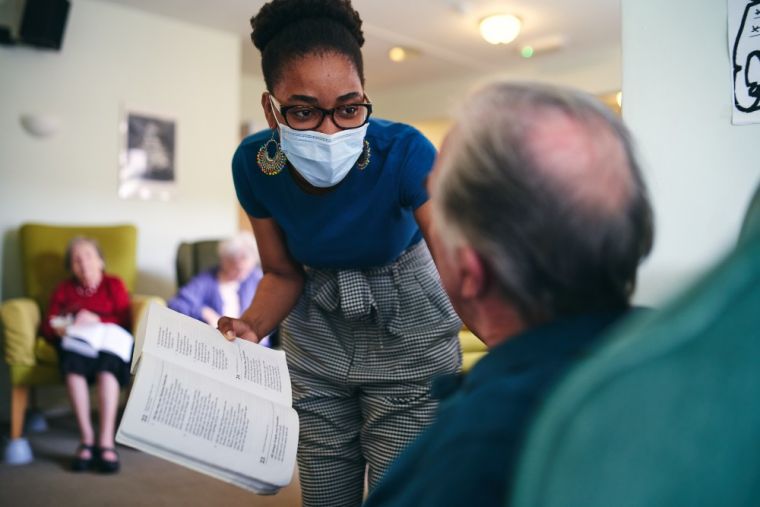How the Church can stand in the gap as social care fails

The lack of care staff is forcing some care homes to turn people away, even elderly patients from hospital, and domiciliary care providers are handing back care packages to their local authorities. The National Care Forum says that in the period 3 September to 20 October, some 5,000 people were turned down for care.
And the problem is set to worsen as the Care Quality Commission (CQC) warns there will be 'a tsunami' of people without the care they need this winter unless staff shortages are tackled. The reasons given are the new immigration rules, a reluctance to accept vaccination, and better wages paid by supermarkets.
The 'tsunami of unmet need' is more than a striking phrase and the figures do not show the human tragedies happening behind closed doors. I'm seeing it close to hand with a couple of old friends: the husband (90), a gentle, retired pastor, has dementia, and his wife (87) has been waiting the best part of a year for an operation that will adjust her pacemaker to cope with a failing heart. She has finally been given a date and is phoning her friends to see who can take her the 20 miles to the hospital by 8.00 am and someone else who can look after her husband while she's gone for the day.
Recruiting carers is not a new problem. At any point during the past 10 years there have been 100,000 vacancies. In October 2019, Age UK found that in the 18 months between the July 2017 and December 2019 elections, over 1.5 million calls for help had been turned down, and each day an average 80 people had died waiting for care support.
This tsunami has been building since 2010, when government funding for social care plummeted. Adequate funding would have meant higher wages for care staff, better reflecting their skills and responsibilities and the vital jobs they do, and greater awareness of their value among the public.
What can we, as people commissioned by God to care for one another, do to help?
The Christian charity I work for, the 215-year-old Pilgrims' Friend Society, has both retirement housing and care homes. We pray over Zoom each morning and at noon, lifting our work to God, praying especially for our care staff. They have coped magnificently through the crisis and the extra work it has brought, and we ask God daily to renew their strength. We are blessed by the church fellowships who help: they pray for us, raise money and come in as volunteers. Our new home in Chippenham has been built with facilities for them and the local community in mind, with a restaurant, hairdressing salon, and meeting rooms.
For people struggling to care at home, it's the simple things that help. For my old friends, someone from the fellowship has offered to drive her to the hospital (a round trip for him of 40 miles), and another to stay with her husband for the day.
But the need to distance has been removed now, and it's an opportunity for churches to step up their help. It helps if a church has a 'care lead' who can note people needing help and discover from the fellowship things they feel they can do, matching needs to talents. Some people are whizzes at filling out forms and cutting through bureaucracy, and some are blessed with an empathy that enables vital spiritual support. Rather than ask 'how can we help?', make practical suggestions, like cutting the grass, staying with a husband so the wife can have an hour or two to herself, perhaps getting her hair done or even doing the ironing. At one church I visited some of the ladies loved baking, and would bake an extra cake to be taken around to the family; and the 'lead' knew where that would be most welcome! Of course, it is more than just a cake. It's the family of God saying, 'we haven't forgotten you; we love you.'
It's also an opportunity for reaching into the community, resources permitting. Many churches are already integrated with their local community, and the older people struggling on their own are still the Sunday School generation.
Our website has a section on helpful resources, including a booklet on 'Visiting a Person with Dementia'. For information on issues relating to old age contact info@pilgrimsfriend.org.uk
Louise Morse is media and external relations manager with the Pilgrims' Friend Society. She is a cognitive behavioural therapist with a master's degree examining dementia caregiver burden. She has published six books on issues of old age, including dementia, and is a speaker at national Christian events and in churches.











